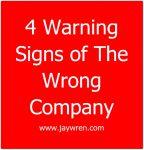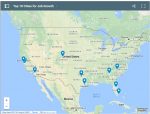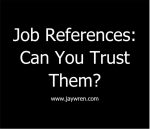Job offers are the midway point in a job change. ~ www.jaywren.com
Job offer: There are many things that you need to know to get a job offer. However, the answer to this one question is critical.
The One Thing You Should Know to Get a Job Offer
There are many interview questions that challenge your ability to think on the spot. There are many things that you just can’t know.
Often, you don’t know anything about the other candidates, the salary, or the interviewer.
Therefore, you need to prepare by being able to answer one simple question.
Why Should We Hire You?
The things that you do know are the facts of your qualifications: that is, the things that make you the person the company wants to hire.
Furthermore, you not only want to show that you have the experience and education for the job. You want to show that you have a record of accomplishment in the job for which you are applying.
Here’s How You Make It Work.
Before you go to an interview, rehearse a short pitch on how your experience shows that you have successfully performed the same job. Some people call this short pitch, “The Elevator Pitch.”
- Say that they should hire the most qualified person for the job.
- Summarize the objective of the job.
- State a list of successful things you have done to achieve and exceed this type of objective.
- State that the reason that you are interviewing for the job is that you enjoy performing the type of tasks the job requires.
- Close by saying that whomever the company hires, the person will be lucky to get the job.
- Say that you hope that the company hires you.
In conclusion, prepare for the question “Why should we hire you?“
This type of question challenges you to think about your qualifications. In your preparation, you can practice giving answers that show that you are an outstanding applicant for the job. Answering the question with a positive, enthusiastic statement about how much you want the job will help seal your opportunity in getting a job offer.
http://www.jaywren.com/category/job-offers/





